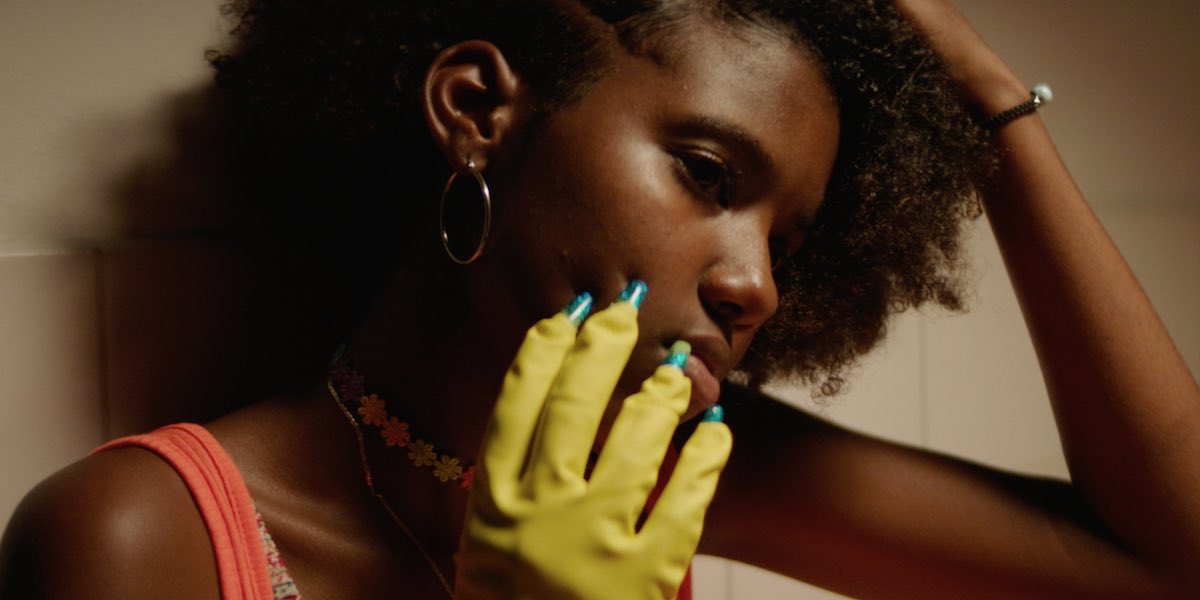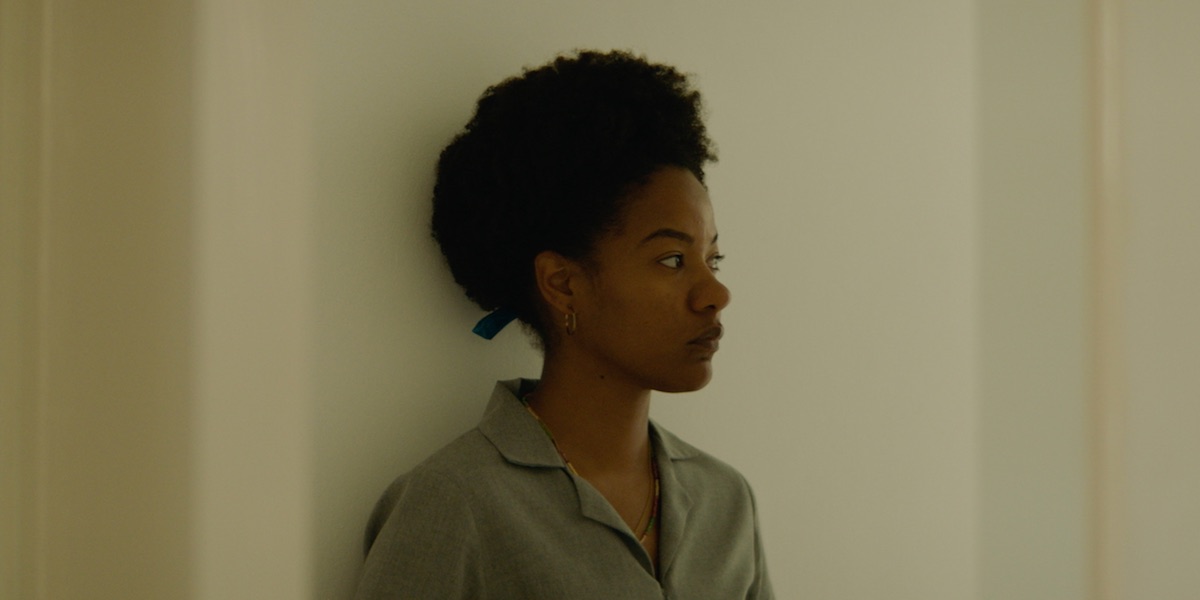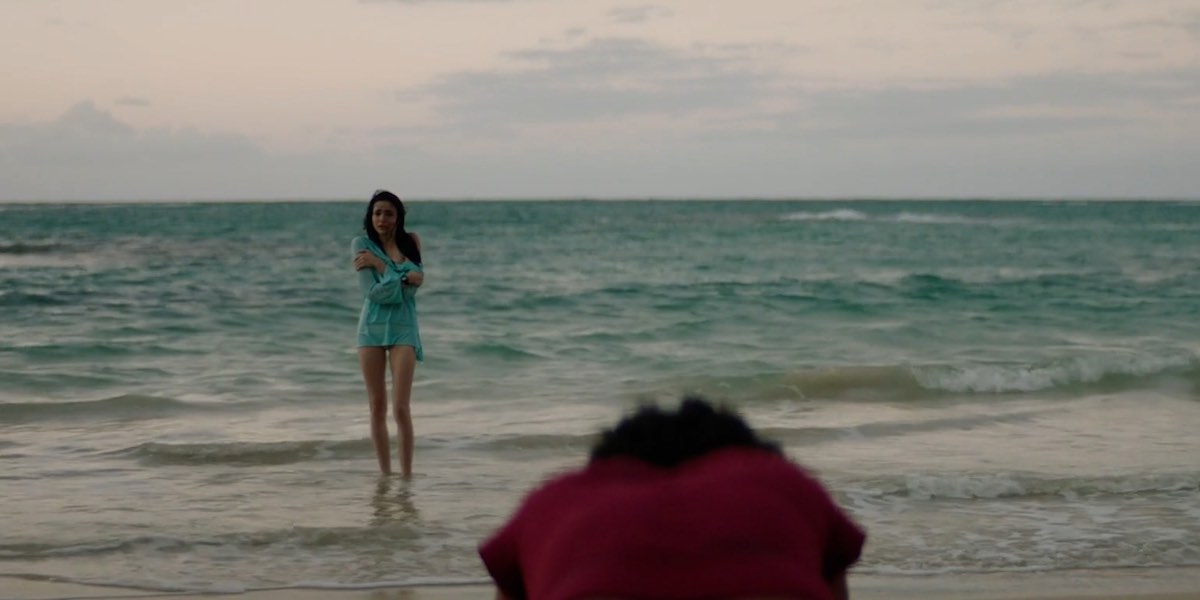Carajita
Silvina Schnicer, Ulises Porra / Argentina, Dominican Republic / 2021 / 89 min





San Sebastian Int'l Film Festival
Special MentionGuadalajara Int'l Film Festival
Best Ibero-American Fiction, Best Direction, Best Actress, Best CinematographyMiami Int'l Film Festival
Ibero-American Feature Film AwardTribeca Film Festival
Filmfestival Kitzbühel
Best Feature FilmMar de Plata Int'l Film Festival
Spanish Film Club
Related Films
 Guie’dani’s Navel(El Ombligo de Guie'dani (XQUIPI' GUIE'DANI))Xavi SalaIn a star-making performance, Sótera Cruz brings razor-sharp intensity to her portrayal of Guie’dani, a Zapotec girl determined to fight for her ...
Guie’dani’s Navel(El Ombligo de Guie'dani (XQUIPI' GUIE'DANI))Xavi SalaIn a star-making performance, Sótera Cruz brings razor-sharp intensity to her portrayal of Guie’dani, a Zapotec girl determined to fight for her ... Miriam Lies(Miriam Miente)Natalia Cabral, Oriol Estrada The first dramatic feature by documentary duo Natalia Cabral and Oriol Estrada centers on a quinceañera celebration and shows how racial prejudices ...
Miriam Lies(Miriam Miente)Natalia Cabral, Oriol Estrada The first dramatic feature by documentary duo Natalia Cabral and Oriol Estrada centers on a quinceañera celebration and shows how racial prejudices ... Wandering Girl(Niña errante)Rubén MendozaA mesmeric journey of four half-sisters across Colombia blends the candor of Hirokazu Kore-eda’s Our Little Sister with the sensuality of Deniz Gamze ...
Wandering Girl(Niña errante)Rubén MendozaA mesmeric journey of four half-sisters across Colombia blends the candor of Hirokazu Kore-eda’s Our Little Sister with the sensuality of Deniz Gamze ... SublimeMariano BiasinMariano Biasin’s acclaimed and tenderly observed coming-of-age film follows sixteen-year-old Manuel as he navigates adolescence in a small coastal ...
SublimeMariano BiasinMariano Biasin’s acclaimed and tenderly observed coming-of-age film follows sixteen-year-old Manuel as he navigates adolescence in a small coastal ... My Brothers Dream Awake(Mis hermanos sueñan despiertos)Claudia HuaiquimillaÁngel and his younger brother Franco have been incarcerated in a juvenile prison for a year. Despite the difficulties, they have formed a solid group of ...
My Brothers Dream Awake(Mis hermanos sueñan despiertos)Claudia HuaiquimillaÁngel and his younger brother Franco have been incarcerated in a juvenile prison for a year. Despite the difficulties, they have formed a solid group of ...Synopsis
Spanish with English subtitles- Spanish language audio description available *
With Cecile Van Welie, Magnolia Núñez, Adelanny Padilla
Featuring striking cinematography and outstanding performances, Carajita (which means annoying child) explores the tenuous relationship that exists between race, class, and family.
Sarah, the pampered daughter of a corrupt oligarch whose family recently relocated to Las Terrenas, thinks of her Black Dominican nanny, Yarisa, as “part of the family.” The two have a “mother-daughter-like” relationship that transcends their social standing. That illusion is put to the test when Yarisa’s spirited daughter Mallory goes missing, challenging Sarah’s naïve beliefs.
Boasting intuitive storytelling and confident direction, Carajita plays like a psychological thriller, deriving oppressive tension from unspoken inequalities and the impunity of privilege.
* Spanish language audio description available via All4Access App and/or .wav file when purchasing a DSL license.
Accessibility for these films was created by DICAPTA and funded under a grant from the U.S. Department of Education- Office of Special Education-OSEP, project “Enhanced Access to Video for Students with Sensory Disabilities through Emerging Technology,” TV Access H327C210001.
Related Subjects
About the Director
In 2012 they co-wrote and co-directed the short film La Bicha, winner of Argentina’s Fondo Nacional de las Artes Award. In 2017 they made their directorial debut in feature films with Tigre, which premiered at the Toronto International Film Festival and participated in San Sebastian Festival’s New Directors section. Carajita is their second feature.
Press
“This film would be valuable viewing for courses that focus on Latin American studies, particularly regarding privilege and race/class divisions, and film courses, as the cinematography, pacing, and symbolism make this piece ripe for discussion.” – Mary Kamela, Student Support and Engagement Librarian, University at Buffalo, EMRO
“Carajita starts strong, unfolds at the speed of gunpowder and ends with a tremendous final explosion. Taking the viewer's breath away with its opening scene (literally), Argentinian director Silvina Schnicer and Catalan Ulises Porra raise the bar of their mastery even higher.” – Carlos Loureda, Fotogramas
“The agonies of the Caribbean’s colonial legacy are examined with aesthetic elegance and unsettling elusiveness in Carajita. The duo offers a potent, visually gorgeous and sometimes potently enigmatic drama.” – Jonathan Romney, Screendaily
“The title of this powerful film refers to an annoying child or, in a less usual way, to adults who behave like children. Carajita joins its definition to a narration crossed by the economic, social and cultural asymmetries represented by the intramural relationship with the domestic service.” – Pablo De Vita, La Nacion
Notes on the Film
“The structure of our lives depends on our social position. We didn’t want to judge Sarah, Yarisa, or Sarah’s family. We just wanted to look critically at the system. In the Dominican Republic, the ruling class, mostly whites, represents 2% or so of the population. Every character does what they’re programmed to do. At the same time, individually, each character is trying to do their best with the tools that they have.
This movie was begging us not to have a naïve message. In 99% of situations like this, the powerful are free and the powerless don’t find justice. But, hopefully, in the case of Sarah, she may realise that the path she chose comes to an end.”
– Ulises Porra & Silvina Schnicer, Directors